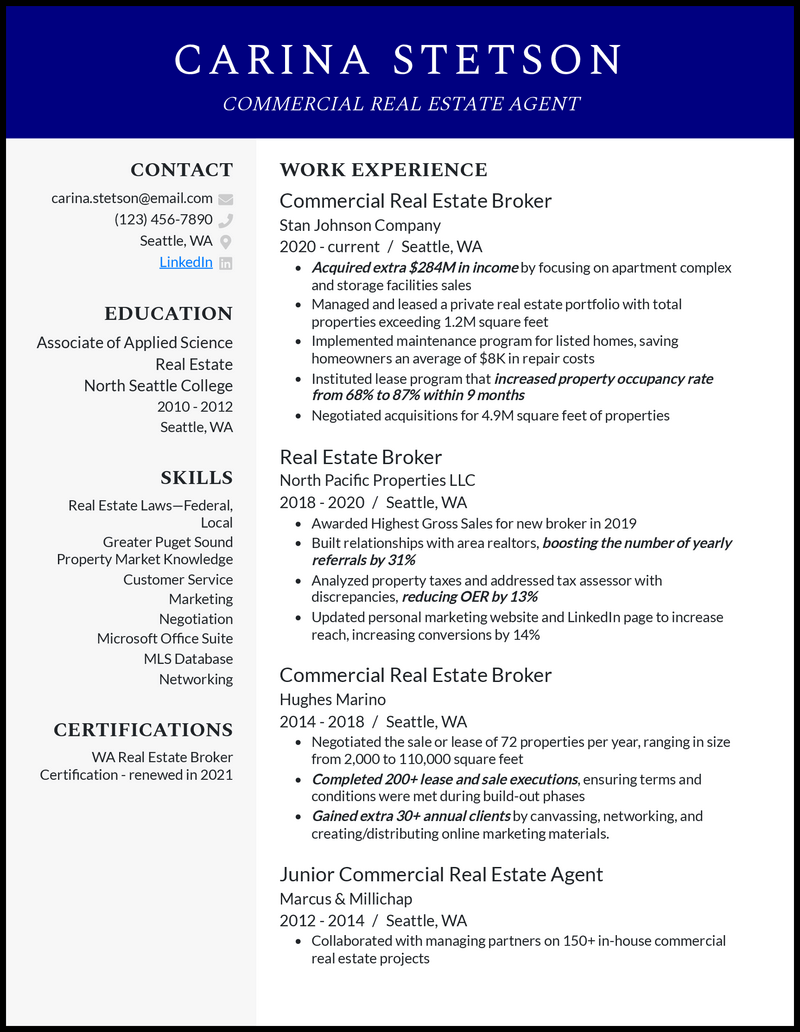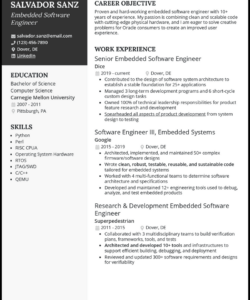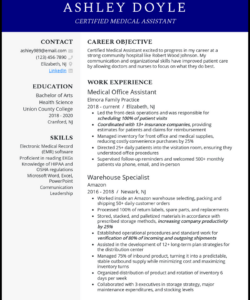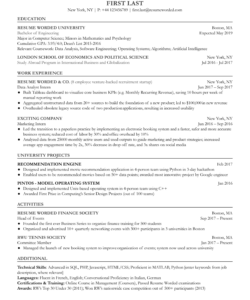Landing your dream job in the dynamic world of commercial real estate starts long before you ever step into an interview room. It begins with a powerful first impression, and for many, that impression is made through their resume. Crafting a document that truly captures your experience, skills, and unique value proposition can feel like a daunting task, especially when you are vying for highly competitive roles.
Imagine having a solid foundation, a blueprint that guides you in showcasing your expertise in property acquisitions, leasing, development, or investment analysis. That is precisely where a well-structured resume comes into play, providing a clear and compelling narrative of your professional journey in this specialized industry.
Crafting Your Standout Commercial Real Estate Resume
When you are aiming for a role in commercial real estate, your resume is more than just a list of past jobs; it is a strategic marketing document. It needs to clearly articulate your understanding of market trends, your negotiation prowess, and your ability to drive significant transactions. Generic resumes simply will not cut it in an industry that demands precision and results. Every bullet point should speak to your impact and value.

Think about the specific area of commercial real estate you are targeting. Are you focused on industrial, office, retail, multifamily, or perhaps land development? Tailoring your resume to reflect this specialization, highlighting relevant projects and deal sizes, is paramount. Recruiters are looking for candidates who can hit the ground running, and a resume that immediately signals your fit for their specific needs will grab their attention.
A truly effective resume showcases not just what you did, but the quantifiable impact of your actions. Instead of saying "managed properties," consider "Managed a portfolio of 1.2 million square feet across 5 industrial properties, increasing occupancy by 15%." Numbers and concrete achievements are highly persuasive in commercial real estate, demonstrating your direct contribution to revenue, cost savings, or portfolio growth.
Essential Elements for Your Template
- **Contact Information:** Clear and professional details including name, phone, email, and LinkedIn profile.
- **Summary or Professional Objective:** A concise, impactful paragraph (or two) highlighting your core competencies and career aspirations in commercial real estate. Tailor this for each application.
- **Experience:** Detail your previous roles, using strong action verbs and quantifying achievements. Focus on deals closed, square footage managed, revenue generated, or investments secured.
- **Education:** List degrees, certifications, and relevant coursework. Include academic honors if applicable.
- **Skills:** Categorize your skills, including technical (e.g., Argus, Excel modeling, GIS), soft skills (negotiation, communication), and industry-specific knowledge (due diligence, zoning, market analysis).
- **Awards and Recognitions:** Any industry awards, top performer recognitions, or professional affiliations.
Beyond the content, the visual presentation of your resume matters. A clean, professional layout that is easy to read and navigate will make a positive first impression. Use a consistent font, appropriate white space, and clear headings. Remember, even with an excellent commercial real estate resume template, attention to detail in formatting reflects your professionalism.
Maximizing Your Template for Success in a Competitive Market
Using a commercial real estate resume template can be incredibly beneficial, not just for saving time, but for ensuring you cover all the essential bases. It provides a structured framework, allowing you to focus on populating it with your unique experiences and achievements rather than worrying about design from scratch. This consistency helps present your information in a professional and easily digestible format for busy hiring managers and recruiters.
However, simply filling in the blanks of a template is not enough. The true power lies in how you adapt and personalize it for each specific job application. Every commercial real estate opportunity will have slightly different requirements and priorities. Take the time to meticulously review the job description, identify key skills and responsibilities, and then strategically integrate those keywords and concepts into your resume.
Many companies utilize Applicant Tracking Systems (ATS) to filter resumes before they even reach human eyes. This means your resume needs to be optimized with relevant keywords to pass through these digital gatekeepers. Incorporating industry-specific terms like "valuation," "leasing," "asset management," "financial modeling," and "due diligence" throughout your experience and skills sections will significantly increase your chances of being noticed.
Before sending off your meticulously crafted resume, ensure it is absolutely flawless. Proofread it multiple times, checking for any grammatical errors, typos, or inconsistencies in formatting. Consider having a trusted colleague or mentor in the commercial real estate industry review it as well. An objective eye can catch mistakes you might have overlooked and provide valuable feedback to further strengthen your document, ensuring it effectively positions you for your next career move.


